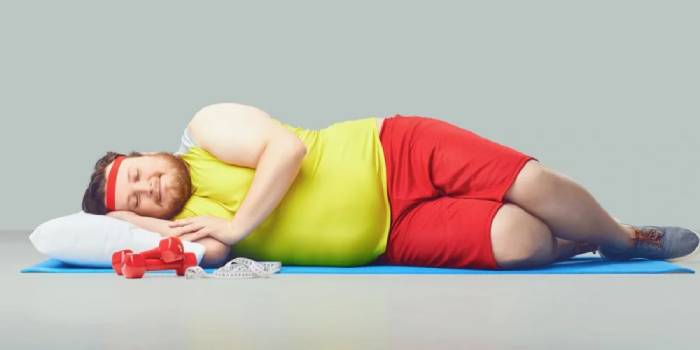Created by DELL E3
Every time a new year comes, many people think about what they would like to achieve and what qualities they would like to develop in themselves in the next 12 months.
Based on the latest sociological surveys, approximately a third of all adults plan to set some personal growth goals for themselvesbut it’s one thing – something for yourself to promise and something completely different to do something for it.
In previous years, between 17% and 45% of Britons surveyed admitted that forgot the promises we made to ourselves after the first month. And one survey showed that mid-year, the majority abandon their intentions. Americans, according to a recent survey by the sociological company YouGov, writes the BBC, last year showed much more resilience than the British: only 16% of those who made promises to themselves gave up before the end of the year.
When people neglect their New Year’s resolutions year after year, it results in a phenomenon that… psychologists call the annual cycle “false hope syndrome.” To avoid this, they advise setting more realistic and achievable goals, the success of which can be easily measured, and not such global ones as quitting smoking or giving up alcohol. However, deciding what to focus on can be quite difficult.
Experts presented seven aspects of life for the first few days after the New Year. Scientists quickly, simply and clearly explained what needs to be done, why it is important, and what will happen next (result).
Day 1: Focus on your sleep.
After a long New Year’s Eve, it makes sense to start paying attention to your sleep. During the winter season, there is no need to feel guilty if you constantly want to turn off the alarm and continue to sleep. Research shows that people are characterized by “seasonal sleep”, which means that in dark winter time needs more rest than summer.
To improve your winter sleep, go to bed earlier, avoid bright light two hours before bed, and don’t look at your phone right before you close your eyes. Recent research has shown that regularly going to bed at the same time can help maintain gut health, among other things. In addition, in your sleep, thanks to somatotropic hormone, you lose weight!

Day 2: Focus on your body.
If you have trouble sitting still, don’t worry. It turns out that unconscious movements like tapping your foot or fidgeting with your fingers can burn a surprising amount of calories and help reduce stress. Winter is a good opportunity to get outside and exercise in the cold. It strengthens the heart and immune system, and helps you lose weight by converting white fat cells to brown ones.
And while you’re exercising outside, you can also try walking backwards. It burns more calories than regular walking, and at the same time strengthens your back muscles. This type of walking is especially recommended for people with knee problems, as it reduces the load on the knee joint and increases the flexibility of the hamstrings. Wall squats and planks are the best for lowering blood pressure.

Day 3: Focus on your thoughts
Talk to a stranger, expose yourself to fear, let the chaos of life consume you. According to science, all of these things can make you happier and less stressed. You can also try something new in life. Challenge yourself by trying learn a new skill. So it is possible increase mental flexibility, allow the brain to adapt and reprogram itself (by leaving its comfort zone).
If you have particularly high energy, you can also try squats. This may seem like a simple exercise, but it can improve blood flow to the brain, which is beneficial for cognitive and problem-solving skills. Standing still and admiring the vastness of the universe for a few minutes is a great way to reduce stress and improve memory. If squatting is too hard for you, you can always just mentally picture yourself as a younger person.
Research shows that thinking about yourself as young can help you live longer.. Might as well try please yourself more with something new and amazing. Whether it’s climbing a mountain, watching the ocean or admiring the starry sky. The feeling of “awe”, catharsis, helps reduce stress, improve memory, and increase the feeling of connection with other people and the world around us.
The most accessible cure for stress: when everything is bad, sing. Better in chorus. This aerobic exercise releases endorphins – hormones responsible for good health. Or you can learn breathing exercises. Just breathe. Research shows that breathing exercises can help with stress, anxiety and high blood pressure. They are also beneficial for good sleep.

Day 4: Focus on your relationships.
Having friends is also very beneficial: friendship can strengthen your immune system, improve your cardiovascular health and help you feel happier. And if you want something more than just friendship, highlight the unusual in yourself. Small changes in clothing, as well as tastes and opinions that go slightly against the grain, can make you more attractive.
Another step that can bring a lot of benefits in life is saying “I forgive you.” Forgiving someone and telling them about it can reduce your stress levels and even keep you healthier as you age.

Day 5: Focus on what you eat.
The holidays are not the time to count calories, and rightly so. Since holiday tables are always strewn with salty and sweet treats, many overindulge in them, although, contrary to popular belief, a large meal does not actually stretch the stomach.
It’s no surprise that many people start the new year thinking about what we eat. If you have leftover food from a holiday, eating it rather than throwing it away is better for the environment.
A balanced diet, of course, is useful at any time of the year, but especially after holiday overeating. And when we talk about fruits and vegetables, we’re not just talking about greens: Research has shown that eating a variety of fruits and vegetables can not only improve brain health, but also reduce the likelihood of heart disease.
“Dry January,” a complete abstinence from alcohol, is a popular way to start the year these days.but from There is absolutely no need to give up coffee: Research shows that those who drink this drink have a lower risk of dying from stroke, heart disease or cancer. Although, of course, It is recommended to drink coffee, like everything else, in moderation.
Day 6: Focus on your fitness.
Exercise is not only a way to build strength, burn fat and improve mental health, it also benefits the microflora in your gut. You shouldn’t get too hung up on achieving the trendy goal of 10,000 steps a day. Some studies suggest that fewer steps (in some cases, less than five thousand steps per day) may be sufficient.

Day 7: Focus on a hobby.
While a few minutes of doing nothing and allowing your mind to wander a little can be surprisingly beneficial, some people go to great lengths to relieve boredom. People who are prone to boredom may engage in behavior that is akin to addiction, such as compulsively scrolling through social media feeds on a mobile phone. This line associated with an increased susceptibility to a range of mental health problems. Can anyone help new hobby. Doing something you love will help keep your brain young, promote creativity, and prevent boredom.







More Stories
What to do if attacked by a dog (video)
Greece – a paradise for gourmets
Message from AEK and PAOK fans in defense of Esphigmenou Monastery